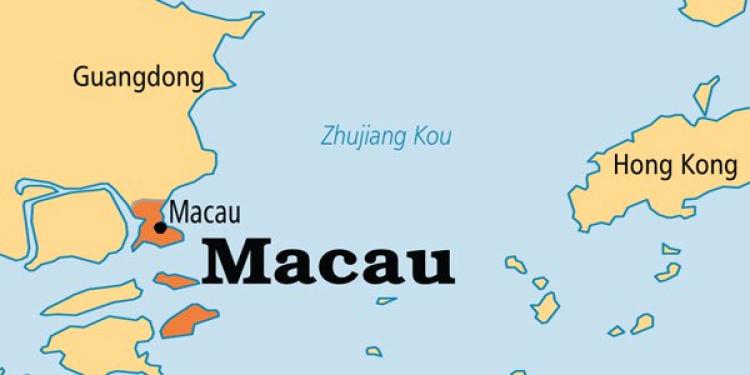China And Macau – Gambling Together Apart
Posted: October 8, 2014
Updated: June 4, 2017

Gambling has been around for a long time in China but hasn’t been legal (this time round) since the Communists took over in 1949, so how has Macau survived on the doorstep of this slumbering giant?
As everyone today is aware there are casino building projects going on all around the pacific rim as countries surrounding the honey-pot that is the Chinese gambling market with ever more lavish and expansive resorts. This is no surprise given the Chinese love of gambling goes back a long way and as the success of Macau itself demonstrates there is an all but insatiable demand for access to gaming opportunities despite laws strictly prohibiting it.
China; Gambling On The Edge
• The first legal Macau poker rooms opened in 1962
• Portuguese revolution in 1974 required return of the province
• Macau handed back to the Chinese on Dec. 19th 1999
Of course there is evidence of gambling in China stretching back 2,300 years or so, and the lack of evidence from prior to that is hardly evidence of a lack of gambling. Many of the games that we know and love stem from ancient versions played in China by people specifically forbidden from doing so. It would appear, at times, as if that were a law more honoured in the breach, certainly it has never seemed to stop the Chinese gambling.
Indeed it didn’t matter who made the law the result was the same. From the dynasties of the ancient world right through the communist era to today the prohibition of gambling was enforced by each new government as they came and went, yet throughout the pass time of gambling in China was never more than a stone’s throw away. Even today with all the apparatus of a modern state illegal gambling in China accounts for a trillion yuan annually.
The Chinese then will gamble regardless, so then perhaps that’s why when the Communists came to power they left the rather vexing questions of Hong Kong and Macau until a more appropriate juncture, a juncture that wouldn’t occur for another 50 years. Perhaps having two such unique entities right on the doorstep would do something to relieve the pressure that much otherwise result. Whether this was a consideration or not the boom both have enjoyed seems to suggest it might be so.
Gambling Brings In Tourists
It was in 1962 that the first monopoly gambling license was agreed to by the government allowing Sociedade de Turismo e Diversoes de Macau to run the entire gaming market within Macau. The syndicate of Hong Kong and Macau based businessmen set about providing modern facilities and gaming opportunities and making vast improvements to local infrastructure, particularly water transport that ferried gamblers from Hong Kong to bet on sports in Macau, Hong Kong which had the all important international airport.
Of course there were always going to be tensions at the border twixt these two countries. The fifties saw some minor gunfights, the sixties some riots in the streets, and in those heady days of liberal free thought there was even a proposal in 1967 to return the province to China from the Portuguese. It was politely refused. At first glance this might seem strange, but the technical nightmare of reintegrating the Macau population back into China proper at that point was beyond them.
It would be events on the other side of the world that would change Macau’s fate this time, with the Carnation Revolution in Portugal during 1974. This military coup that turned into a popular uprising by dint of the addition of a few flowers deposed the then somewhat nationalist leader Estado Novo. His regime swept away the colonial possessions, of so much pride to him, were to be relinquished back to their former sovereignty.
It would be another five years until the establishment of civilized diplomatic relations between the two, Portugal and Communist China and throughout the early eighties both sides worked hard to find a solution to the issues the return of Macau would throw up. Gambling news that the Special Administrative Region status Macau would enjoy might settle matters a joint declaration was issued in 1987 with the timetable set out to hand back Macau in 1999.
”One-County-Two-Systems”
The promise of a “one-country-two-systems” solution whereby China’s control would be limited in the main to Defense and Foreign Policy matters until at least 2049 sold many people on the idea. The laws pertaining to the move were adopted in 1993, and as was happening in Hong Kong preparations were made for the re-aligning of this long time Colony. On the evening of December the 19th, 1999 in the Cultural Center of Macau Gardens the official transfer was held and celebrated till dawn.
The Portuguese had gone, just like the British from Hong Kong two years earlier, the colonial influences on the Chinese doorstep had, fifty years after they came to power, been regained by the Chinese, but at what cost? The Special Administrative Regions are both havens for people who like to escape the world online casinos in Macau made of glass and steel not pixels and sprites, but where do they fit in to the Chinese one country policy? Will that two-system part stick?
Certainly it has been hailed as having done so, the decolonialisation process that Portugal needed to shed its past has not, in the case of Macau, led to some of the turmoil that is being seen even now on the streets of its neighbor Hong Kong. The more pronounced influence of gambling interests in Macau perhaps suggesting that there is more tolerance for the status quo in Macau, however as those fifty years count down it is anyone’s guess what might transpire.
At present Macau is still the gambling paradise it set out to be. The luxurious opulence of the new casino constructions leaving the old town center to be declared a World Heritage Site lest it too become a magnificent glass and steel monument to modern gambling and the Chinese appetite for games of chance. As new resorts and complexes around the region vie for the Chinese gambling market there’s one place that is already ahead of the game, Macau.












